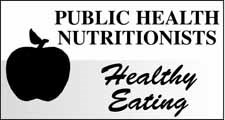Do you know of a great multi-subject learning environment? From reading to science, math to nutrition, it's possible to learn it all in the garden.
Garden-based learning uses the garden as a teaching tool. Active, engaging real-world experiences give personal meaning for children, youth, adults and communities. With the garden as the classroom, students' lessons can come to life as they record plant growth, get involved with composting, and eat fresh produce they have grown themselves.
Gardening can also improve school grades. Studies have shown that third, fourth, and fifth grade students that participated in school gardening activities scored higher on science tests compared to students that did not have any garden-based education.
Garden-based learning not only improves classroom learning, but it also adds to basic life skills. Personal, social, and moral growth happens with garden-based learning.
In some settings, gardening is included within the school curriculum, and in others it supports the curriculum. School garden programs come in as varied shapes and sizes as the things that grow in them, however, there are certain parts that are common to each. A successful school garden program: Inspires students to ask questions and seek answers throughtheir own research and observations. Gives students a chance to see an ecosystem first-hand. Lets students recognize their ability to create. Shows a connection to the natural world. Contributes to the production of healthy food,from seed to table. Applies ideas learned in many subject areas.
Success stories are sprouting up in many school gardens around the province. The great news is for those wanting to get started; the groundwork is already in place. For example, Little Green Thumbs Saskatchewan has developed an in-class "seed to salad" program. The program offers indoor garden and composting kits where students participate in sowing, growing, harvesting and eating their own vegetables. Manitoba's Frontier School Division has also created a Veggie Adventures Curriculum. This is a plant, soil and food-based science curriculum for Kindergarten to Grade 8.
Garden-based learning can make our schools more nurturing and nutritious for our children. As a result, students develop positive attitudes toward vegetables and fruit, and gain confidence in the kitchen. Developing healthy attitudes and skills early can reduce the risk of chronic disease later in life.
For more information on garden-based education, please contact your local Public Health Nutritionist.
Written by the Public Health Nutritionists of Saskatchewan and supported by Public Health, Sunrise Health Region.
If you have any comments or questions please contact: Heather Torrie, Public Health Nutritionist, Sunrise Health Region, 150 Independent Street, Yorkton, Sask. S3N 0S7 or phone: 786-0600.




